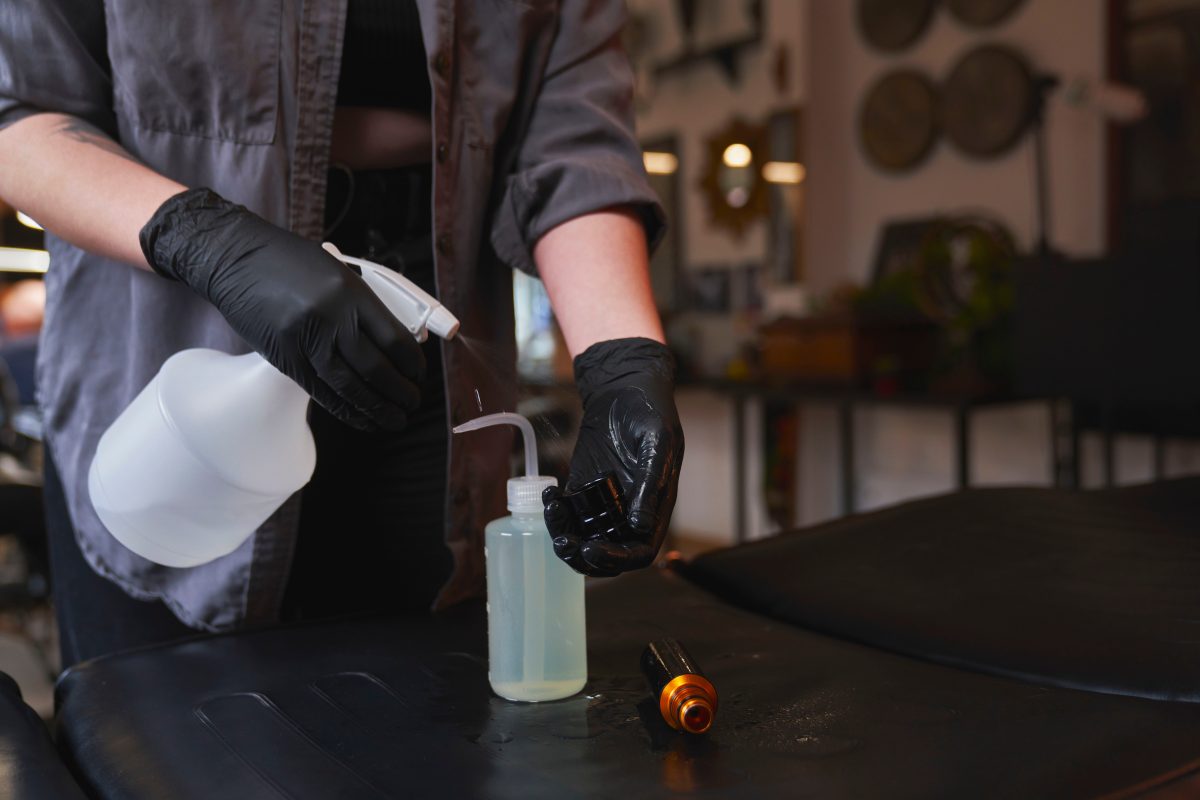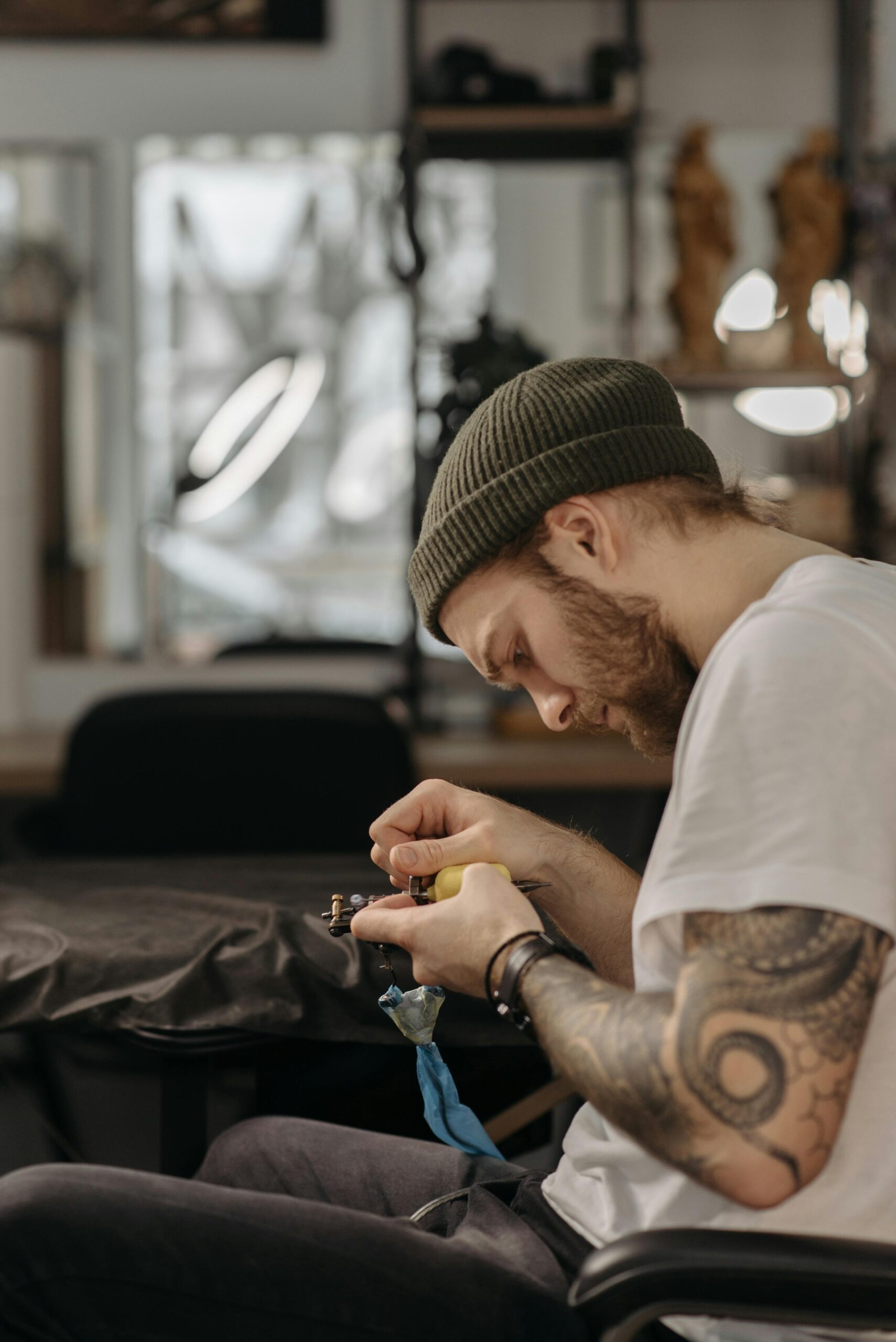Starting a tattoo business in Canada requires navigating complex legal requirements that vary significantly across provinces and territories. This comprehensive checklist covers licensing requirements, health and safety regulations, business registration, insurance necessities, and client protection laws—ensuring your tattoo practice operates legally and professionally from day one.

Understanding Canada’s Tattoo Regulation Landscape
Canada’s federal system means tattoo regulations differ substantially between provinces and territories, creating confusion for artists establishing practices or relocating between regions. Unlike some countries with national tattoo licensing, Canadian regulation occurs primarily at provincial, territorial, and municipal levels.
Each province maintains its own public health regulations governing tattoo practices, covering premises standards, hygiene protocols, age restrictions, and practitioner qualifications. Municipal governments add further requirements through zoning regulations, business permits, and premises inspections. Understanding your specific jurisdiction’s requirements proves essential before investing in equipment or accepting your first client.
According to Health Canada’s body art safety guidelines, proper regulatory compliance protects both practitioners and clients whilst elevating industry professionalism. Non-compliance risks significant fines, forced business closure, and legal liability for client injuries or infections.
Provincial vs. Municipal Requirements
Provincial health departments typically regulate the health and safety aspects of tattooing: sterilisation standards, hygiene practices, infection control protocols, and age restrictions. Municipal governments govern the business operation aspects: premises suitability, zoning compliance, noise restrictions, waste disposal, and business permits.
You’ll navigate both regulatory layers simultaneously, requiring coordination between provincial health authority approvals and municipal permits. Start by researching your province’s health department tattoo regulations, then contact your specific municipality for their additional requirements.
The Public Health Agency of Canada provides overarching infection prevention and control guidance that informs provincial regulations, though specific requirements vary by jurisdiction.
Ontario Tattoo Business Requirements
Ontario regulates personal services establishments including tattoo studios through the Health Protection and Promotion Act and municipal bylaws. Requirements vary significantly between municipalities, with Toronto, Ottawa, and other major cities maintaining specific bylaws.
Ontario Health Standards
Ontario’s Ministry of Health establishes infection prevention and control standards that municipalities enforce through inspections. These standards mandate specific requirements for premises design, sterilisation equipment, single-use equipment protocols, and waste disposal methods.
Premises must meet prescribed physical standards: separate procedure area with easily cleanable surfaces, designated sterilisation area with autoclave, handwashing facilities, and appropriate waste disposal systems. Public health inspectors may inspect premises before granting operational approval and conduct ongoing compliance inspections.
Operators must demonstrate appropriate training in infection control, sterilisation techniques, and client safety practices. Whilst formal qualifications aren’t legally mandated province-wide, demonstrating comprehensive training significantly smooths approval processes.
Age restrictions prohibit tattooing anyone under 18 years without parental consent. With parental consent, minors aged 16-17 may receive tattoos in some Ontario municipalities, though specific age requirements vary by location.
Toronto-Specific Requirements
Toronto requires Personal Service Setting (PSS) operators to register with Toronto Public Health and comply with extensive standards covering facility requirements, infection control procedures, and operator qualifications. Toronto Public Health’s PSS guidelines provide detailed operational requirements.
British Columbia Tattoo Regulations
BC regulates tattooing through the Public Health Act and associated regulations, requiring tattoo operators to comply with infection control standards established by the BC Centre for Disease Control.
BC Health Authority Requirements
Each of BC’s five regional health authorities (Vancouver Coastal, Fraser, Island, Interior, Northern) enforces provincial standards whilst maintaining some regional variations. Contact your specific health authority for precise requirements.
BC mandates minimum age of 19 for tattooing without parental consent, and 16 with documented parental consent. Strict identification requirements apply, with substantial penalties for non-compliance.
Premises requirements include: appropriate work area with cleanable surfaces, sterilisation equipment meeting Canadian Standards Association specifications, adequate lighting and ventilation, secure sharps disposal containers, and separate client consultation area.
The BC Small Business Toolkit provides additional guidance on business registration and operational requirements specific to British Columbia.
Quebec Tattoo Business Standards
Quebec regulates tattooing through the Public Health Act and associated regulations, with Santé Quebec establishing provincial standards that regional health authorities enforce.
Quebec Language Requirements
Quebec’s Charter of the French Language requires business signage, client documentation, and advertising to comply with French language requirements. While you can operate in English or bilingually, French must be predominant in public-facing materials.
Premises must provide: work area meeting hygiene standards, sterilisation equipment complying with Canadian standards, proper waste management systems, and client waiting area separate from procedure space.
Age restrictions prohibit tattooing minors under 18, even with parental consent, except for medical tattooing by qualified medical practitioners.
Alberta, Manitoba, and Saskatchewan Regulations
Alberta regulates tattooing through regional health authorities under Alberta Health Services. Alberta Health Services’ environmental health standards establish requirements for tattoo establishments.
Manitoba requires compliance with The Public Health Act and regulations enforced by regional health authorities. Manitoba Health provides provincial guidance, though specific requirements vary by region.
Saskatchewan regulates through The Public Health Act, 1994, with regional health authorities enforcing standards. Contact your specific Saskatchewan Health Authority region for detailed requirements.
All three Prairie provinces require: appropriate infection control procedures, sterilisation equipment meeting Canadian standards, waste disposal compliance, and age verification (18+ without parental consent, 16+ with consent in most jurisdictions).
Atlantic Canada Requirements
Nova Scotia and New Brunswick
Nova Scotia regulates personal services through municipal bylaws enforced by local public health departments. Nova Scotia Health provides provincial guidance that municipalities adapt locally.
New Brunswick requires compliance with The Public Health Act, with regional health authorities enforcing standards. New Brunswick Health establishes provincial requirements.
Both provinces require minimum age 19 for tattooing without parental consent, with 16+ permitted with documented parental approval.
Newfoundland and Labrador, Prince Edward Island
Newfoundland and Labrador regulates through The Health and Community Services Act, enforced by regional health authorities. Requirements emphasise infection control, sterilisation standards, and premises hygiene.
PEI requires compliance with The Public Health Act, with Health PEI enforcing provincial standards through inspections.
Territories: Yukon, Northwest Territories, Nunavut
Canada’s three territories maintain distinct regulatory frameworks adapted to smaller populations and unique circumstances.
Yukon regulates through The Public Health and Safety Act, with Yukon Health and Social Services establishing standards. The territory’s smaller market creates closer working relationships between artists and health authorities.
Northwest Territories and Nunavut maintain similar frameworks through territorial health departments. Contact NWT Health and Social Services or Nunavut Health directly for specific requirements, as documentation may be less comprehensive than larger provinces.

Federal Business Registration Requirements
Beyond provincial health regulations, operating a tattoo business requires proper business registration with both federal and provincial authorities.
Business Number and GST/HST Registration
Register for a Business Number (BN) through the Canada Revenue Agency. Your BN serves as your identifier for GST/HST, payroll, and corporate income tax accounts.
Once annual revenue exceeds $30,000, you must register for GST/HST and collect appropriate taxes. Provincial rates vary: 5% GST in Alberta, 13% HST in Ontario, 15% HST in Atlantic provinces. Understanding your tax obligations prevents costly compliance issues.
The Canada Business Network provides comprehensive resources for business registration, including province-specific requirements and processes.
Business Structure Selection
Choose appropriate business structure balancing liability protection, taxation, and operational complexity.
Sole Proprietorship
Simplest structure for new tattoo artists, requiring only BN registration and potentially provincial business name registration. Sole proprietors report business income on personal tax returns (T1).
Advantages: simple setup, minimal paperwork, direct income control. Disadvantages: unlimited personal liability, no separation between personal and business assets.
Incorporation
Corporations provide liability protection but involve more complex regulatory compliance, annual reporting requirements, and accounting costs. Once income and asset protection justify additional complexity, many established artists incorporate.
Corporations Canada handles federal incorporation, whilst provinces manage provincial corporations. Tax advantages and liability protection often justify incorporation costs for established artists earning $80,000+.
Partnership Structures
Partnerships suit artists sharing premises and clients, requiring partnership agreements that clearly define responsibilities, income sharing, and dissolution procedures. Register partnerships with appropriate provincial authorities.
According to Innovation, Science and Economic Development Canada, proper business structure selection affects taxation obligations, liability exposure, and operational flexibility.

Insurance Requirements for Canadian Tattoo Businesses
Comprehensive insurance protection proves essential for professional tattoo practice, protecting against liability claims, equipment damage, and business interruption.
Commercial General Liability Insurance
Public liability insurance protects against client injury claims—for example, slip and fall incidents in your premises or allergic reactions to inks. Coverage should reach minimum $2-5 million to adequately protect against serious claims.
Insurance Bureau of Canada provides resources for understanding commercial insurance requirements and finding qualified providers familiar with tattoo business risks.
Annual premiums typically range from $500-1,500 depending on coverage levels and claims history. Many insurers require proof of training, infection control procedures, and regulatory compliance before providing coverage.
Professional Liability Insurance
Professional indemnity insurance covers claims arising from your professional services—for example, claims of negligent design advice or inadequate consultation resulting in client dissatisfaction. This coverage protects against expensive legal defence costs even when claims lack merit.
Additional Coverage Considerations
Contents insurance protects equipment, ink inventory, furniture, and premises improvements against theft, fire, or damage. Specify equipment replacement values accurately, as standard contents policies may inadequately cover specialised tattoo equipment.
Consider business interruption insurance replacing income if fire, flood, or other disasters force temporary closure. For sole practitioners, income protection insurance prevents financial catastrophe if injury or illness prevents working.
Client Consent and Documentation Requirements
Proper client documentation protects both client welfare and your legal position should disputes arise. Comprehensive consent forms document client understanding of procedures, risks, and aftercare responsibilities.
Essential Consent Form Elements
Consent forms must include: client identification verification, age confirmation, medical history disclosure, allergy screening, pregnancy status, previous reactions to tattoos, current medications, consent to specific design and placement, acknowledgment of risks and complications, and agreement to follow aftercare instructions.
Provincial privacy legislation governs client information handling. Canada’s Personal Information Protection and Electronic Documents Act (PIPEDA) establishes federal baseline standards, though some provinces maintain substantially similar provincial legislation.
Record Keeping Requirements
Maintain detailed records for every client including: consultation notes, design specifications, stencil copies, photographs of completed work, consent forms, and aftercare instructions provided. Retain records minimum seven years as required by most provincial regulations.
Implement secure storage systems protecting client privacy whilst allowing record retrieval for health authority inspections. Digital systems with appropriate backup and security measures often prove more manageable than paper records.
The Office of the Privacy Commissioner of Canada provides guidance on proper information handling, storage, and client rights regarding their personal data.

Health and Safety Compliance
Workplace health and safety obligations apply to tattoo businesses under provincial occupational health and safety legislation. Even sole traders without employees must maintain safe working environments and proper infection control procedures.
Provincial OHS Requirements
Each province maintains occupational health and safety legislation:
- Ontario Ministry of Labour
- WorkSafeBC
- Commission des normes, de l’équité, de la santé et de la sécurité du travail (CNESST) – Quebec
- Alberta OHS
Requirements include proper infection control protocols, safe chemical handling, ergonomic workstation setup, and emergency procedures.
Sterilisation and Infection Control Standards
Autoclaves must meet Canadian Standards Association (CSA) standards for sterilisation performance, with regular testing and maintenance documenting proper function. Maintain autoclave test records including biological indicators, integrator test results, and maintenance service records.
Single-use equipment (needles, ink cups, razors, gloves) must never be reused. Implement clear procedures ensuring single-use items open immediately before use and dispose properly immediately after use.
According to Public Health Agency of Canada guidelines, tattoo studios must meet infection control standards comparable to medical facilities for skin penetration procedures.
Age Restrictions and Minor Protection
All Canadian provinces prohibit tattooing minors without parental consent, though specific age thresholds vary by province:
- 18+ without consent: All provinces/territories
- 16-17 with parental consent: Ontario, Alberta, Saskatchewan, Manitoba, Nova Scotia (varies by municipality)
- No minors regardless of consent: Quebec, some BC municipalities
Implement strict identification checking procedures for all clients who appear under 25 years. Acceptable identification includes: driver’s license, provincial ID card, passport, or other government-issued photographic identification showing date of birth.
Compliance Penalties
Penalties for tattooing underage clients include substantial fines ($5,000-$50,000 depending on province), potential criminal charges, and immediate business closure orders. No legitimate reason exists to risk these consequences—always verify age before proceeding.
Document identification verification in client records, including type of identification viewed and verification date. This documentation protects you if age questions arise later.

Premises Compliance and Municipal Requirements
Municipal governments regulate tattoo business premises through various mechanisms: zoning restrictions limiting where tattoo businesses may operate, development approvals for premises modifications, health and amenity standards, and ongoing operational conditions.
Research municipal zoning regulations before committing to premises. Some municipalities prohibit tattoo businesses in specific zones or restrict them through conditional approvals requiring specific operational standards.
Development Approval Processes
Premises modifications—for example, installing sinks, autoclave areas, or client spaces—often require development approval before commencement. Submit detailed plans showing intended modifications and how they meet health authority standards.
Municipal environmental health officers conduct premises inspections before granting operational approval and may require specific modifications before approval. Allow several months for approval processes when planning business commencement timelines.
Federation of Canadian Municipalities provides resources on municipal governance, though specific requirements vary dramatically between municipalities requiring direct contact with your local government.
Professional Training Includes Legal Compliance
Understanding legal requirements intellectually differs from implementing compliant systems confidently. Professional training should include regulatory compliance alongside technical skills, preparing you for every aspect of professional practice.
At Omnia Tattoo Academy, our comprehensive online tattoo courses include detailed modules on Canadian tattoo business legal requirements, covering province-specific regulations, proper documentation systems, infection control protocols, and business registration processes. You’ll understand exactly what compliance requires before accepting your first client.
Our experienced tutors provide province-specific guidance on navigating approval processes, dealing with health authorities and municipalities, and establishing systems that maintain ongoing compliance. With six-day weekly support, you’ll receive answers to specific compliance questions as they arise during your business establishment journey.
Start Your Business with Legal Confidence
Ready to establish your tattoo business with full legal compliance and professional confidence? Our comprehensive tattoo courses provide the technical skills, business knowledge, and regulatory understanding necessary to build successful, fully compliant tattoo practices.
Join Canadian artists who’ve established their businesses through Omnia’s proven training methodology. With flexible payment plans starting at $39 per week, professional equipment included, and comprehensive business and legal training, you’ll build the foundations for long-term success.
Explore our online tattoo course options today and start your tattoo career with complete legal confidence.
The Learning Online Group, parent company of Omnia Tattoo Academy has supported over 15,000 students globally since 2019, providing job-ready skills as a modern alternative to class based education. Explore our specialized brands: Canadian Photography School, Canadian Beauty School, My Learning Online among others. With dedicated 1:1 Tutoring, Flexible Payment Plans and 24/7 Learning Access, Learning Online Group continues to lead the way in Vocational Education in Canada.




